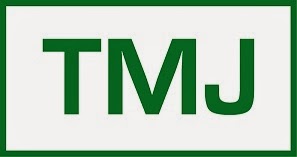This book explains the winning mental attitude needed towards wealth & opportunity. It explains how to think in order to be a true entrepreneur. Set in Hawaii in the 1950s & 60s, it is the true story of 2 influences from the author's past. His own father is a well respected teacher. A union loving man of the government system. His alter ego father is a private investor and risk taker who never went to college. This long time best selling book is about the mindset needed for a comfortable future with money. It explains the entrepreneurial view needed to see opportunities all around you everyday, no matter where you are.
An important part of the story is about how "a nobody" in Hawaii's establishment, without a university education, can save, invest and become "a player" when the timing presents itself. This is his "Rich Dad" influence, a best friend's father. His real father or "Poor Dad" is unhappy with the economic system he has been educated by. He feels cheated by his lack of wealth despite a university PhD education. He does not take risks, yet feels that he should have these risk rewards. It is a mindset that he is trapped by. The main character tries to see both as being worth understanding. They represent the many and the few, and he tries to figure out why. Ultimately, he is trying to decide which career path to take himself.
Some of the concepts that he tries to pick apart includes housing ownership. If you buy a house, is it really an investment? His Poor Dad thinks so. We then learn from Rich Dad that it can be if you pay in cash, but if you fail to pay the mortgage, it is not. He boils down many complex concepts into very simple observations. My favorite is so seemingly simple. Rich Dad states, "an asset puts money in your pocket, a debt takes some money out". With this simple definition, is a private house really an investment? If you rent it out, it puts money in your pocket, if you rent out a room, that would too. However, if you just pay your mortgage, loose your job, and then the house, how can you best view that same house? Is it really still an asset then or just a debt?
The whole book makes you question a number of assumed truths that may be worth questioning. As young kids growing up in Hawaii, any kind of entrepreneurship is rare. It needs a way of seeing opportunities sometimes right in front of you, that needs to be explored. It is a skill that needs to be learned and relearned constantly. Just because you have eyes, not mean that you can see, and in this case it means profitable opportunities are all around you.
The Top 3 Takeaways from this book that really impact any reader are:
1) There is a very easy way of figuring out an asset or a liability. An asset puts money in your pocket, a liability takes it out. By that simple definition, a home you live in, and pay a mortgage for, is not an asset. It may be more of a speculative option.
2) The education you have is only a basic starting point. Lifelong learning needs to continue. There is always something new to learn. You are never an expert forever.
3) The classic fable of the tortoise and the hare can be found in business. Long term savers and investors can build great wealth over time. Reinvesting profits and not "living the life" is what can get you rich more often than not.
To the two boys, finally they see that these coverless comics could be rented to other boys for a fee, who just want to read the stories, so they think about opening a comic lounge. By renting out space for young readers, for a fee, while using "the free inventory" of discarded comics, they create a new business opportunity. They become entrepreneurs even though both are less than 10. This way of seeing the world is what they discover. As a reader, you learn to observe and finally see business opportunities all around you. It is well written and well explained. Many ages can all benefit from this great best seller. Highly recommended!
Please visit us for our Friday Feature Review where TMJ Partners will review books, movies, conferences and anything else with a financial theme. Follow us now for our free weekly updates, just click here. Thank you for reading and learning more about how money is made in finance!
For more Buy-Side and Sell-Side roles in Asia-Pacific, contact our TMJ Partners Japan & Asia Finance team.
Tokyo Tokyo


